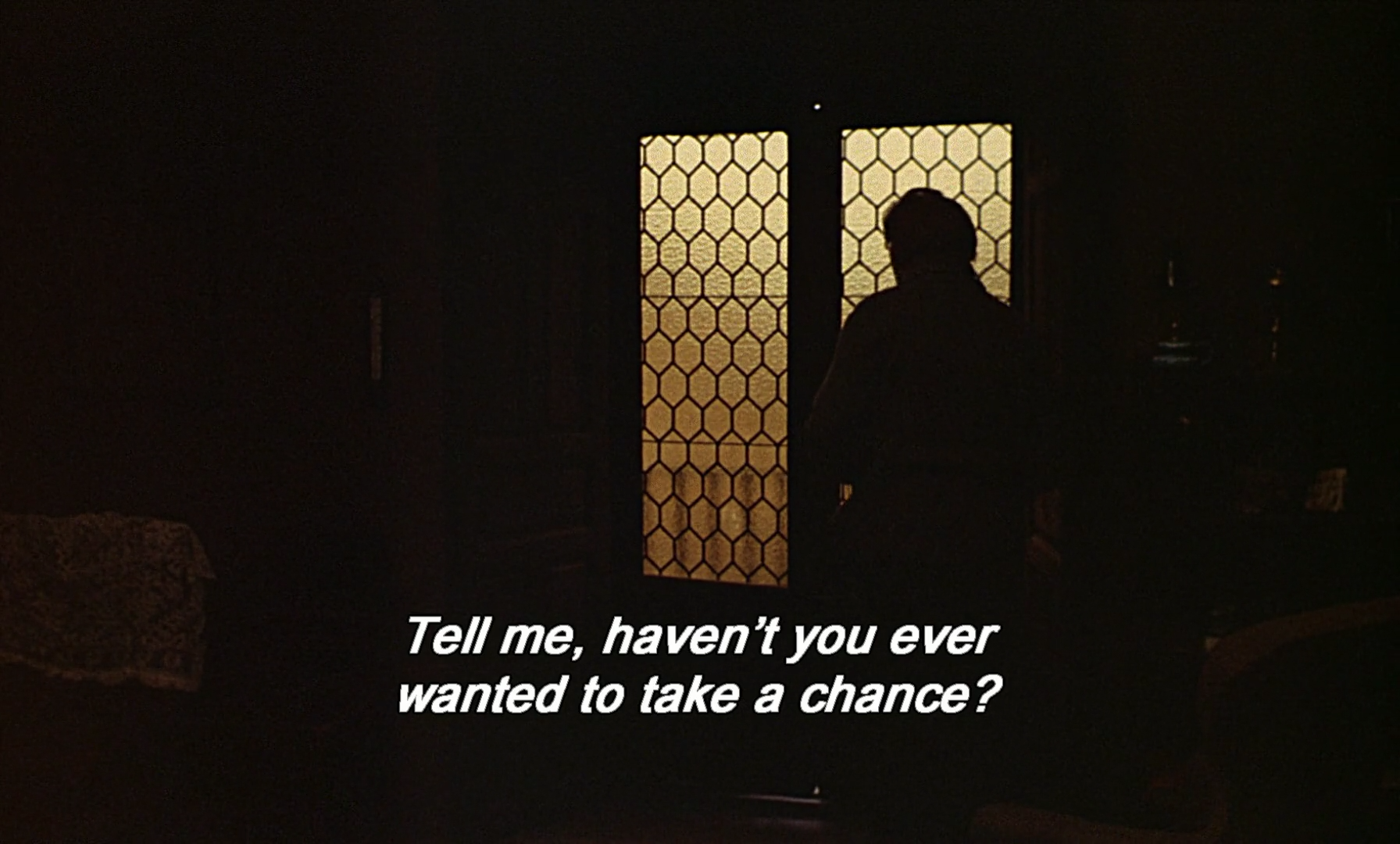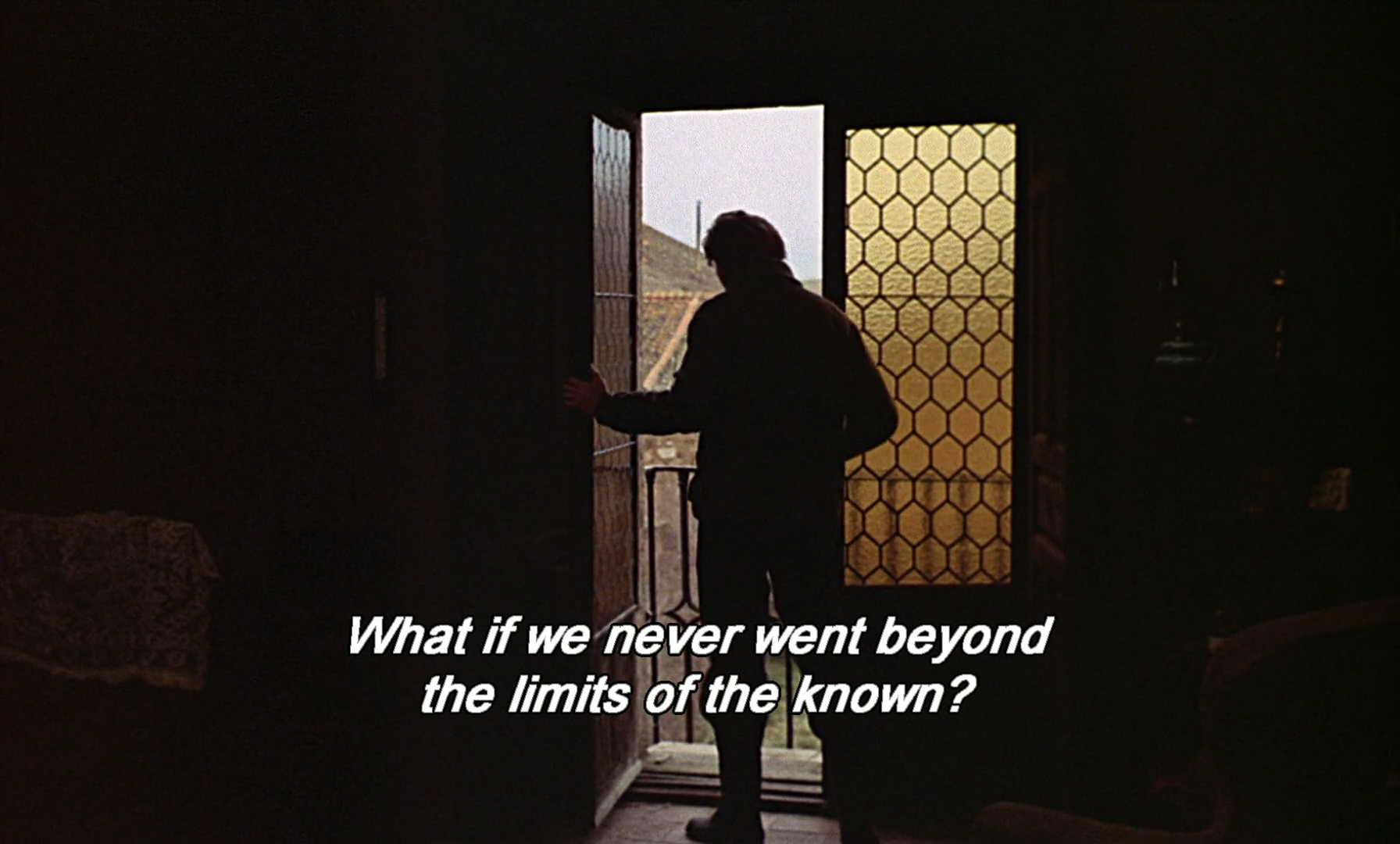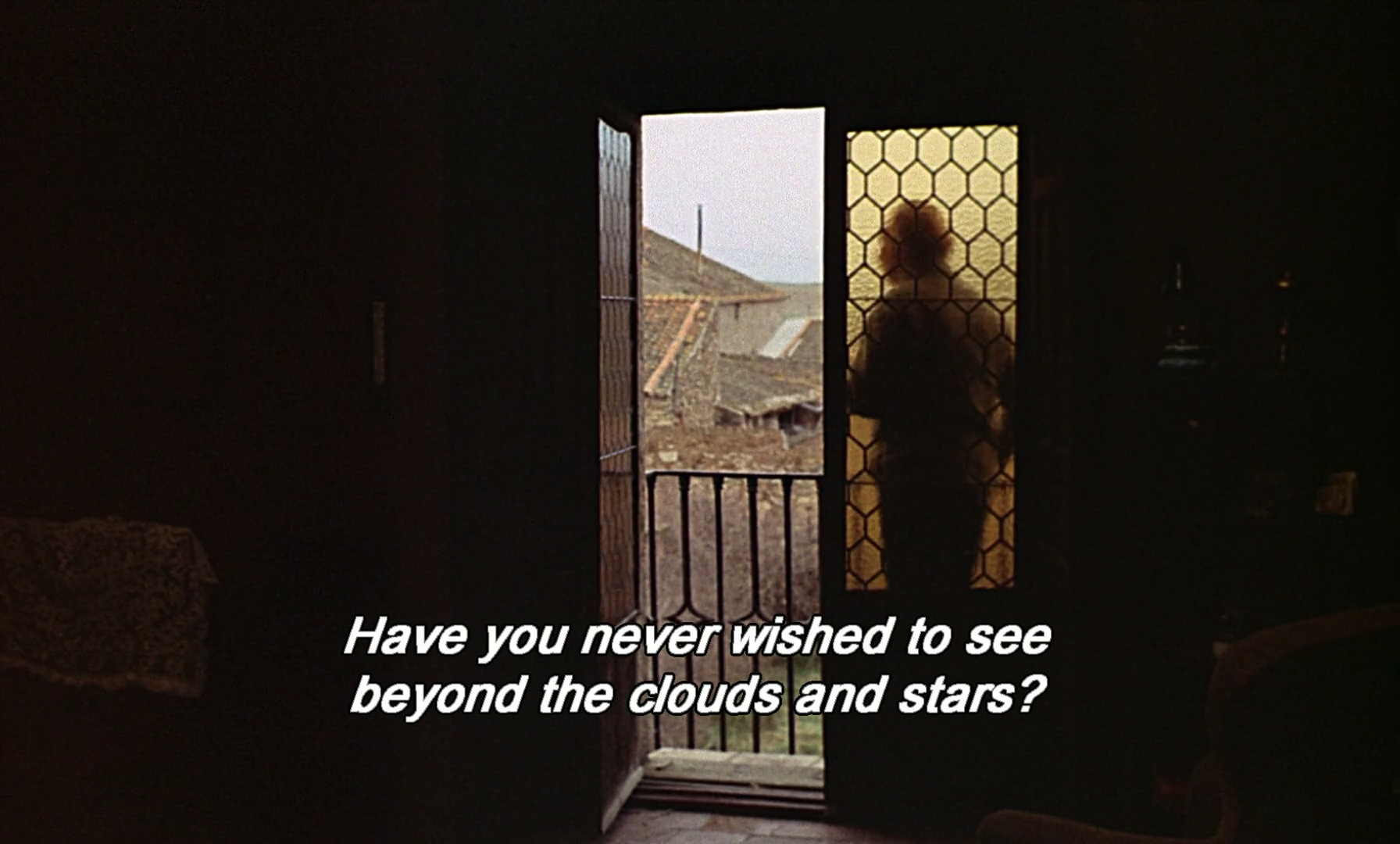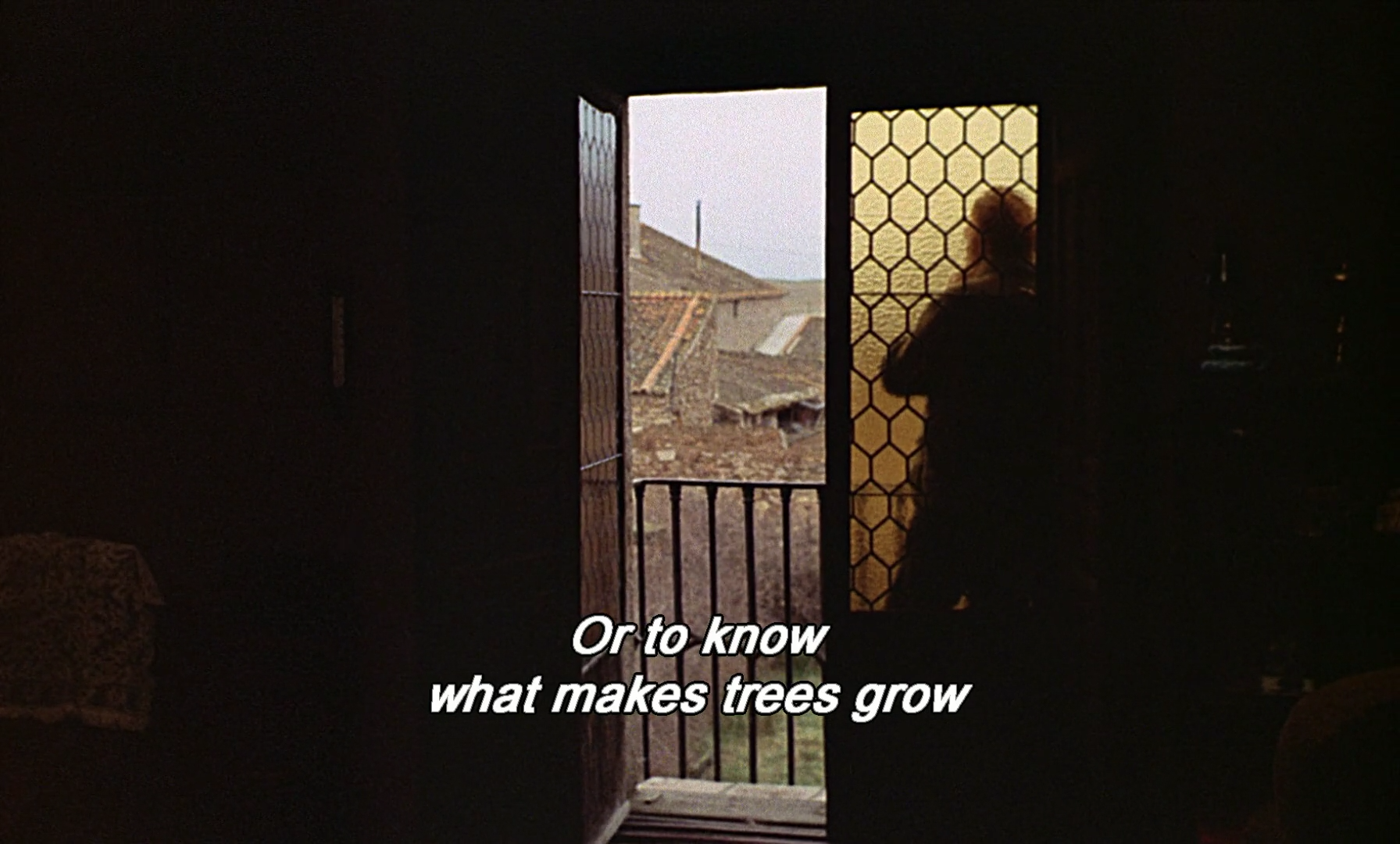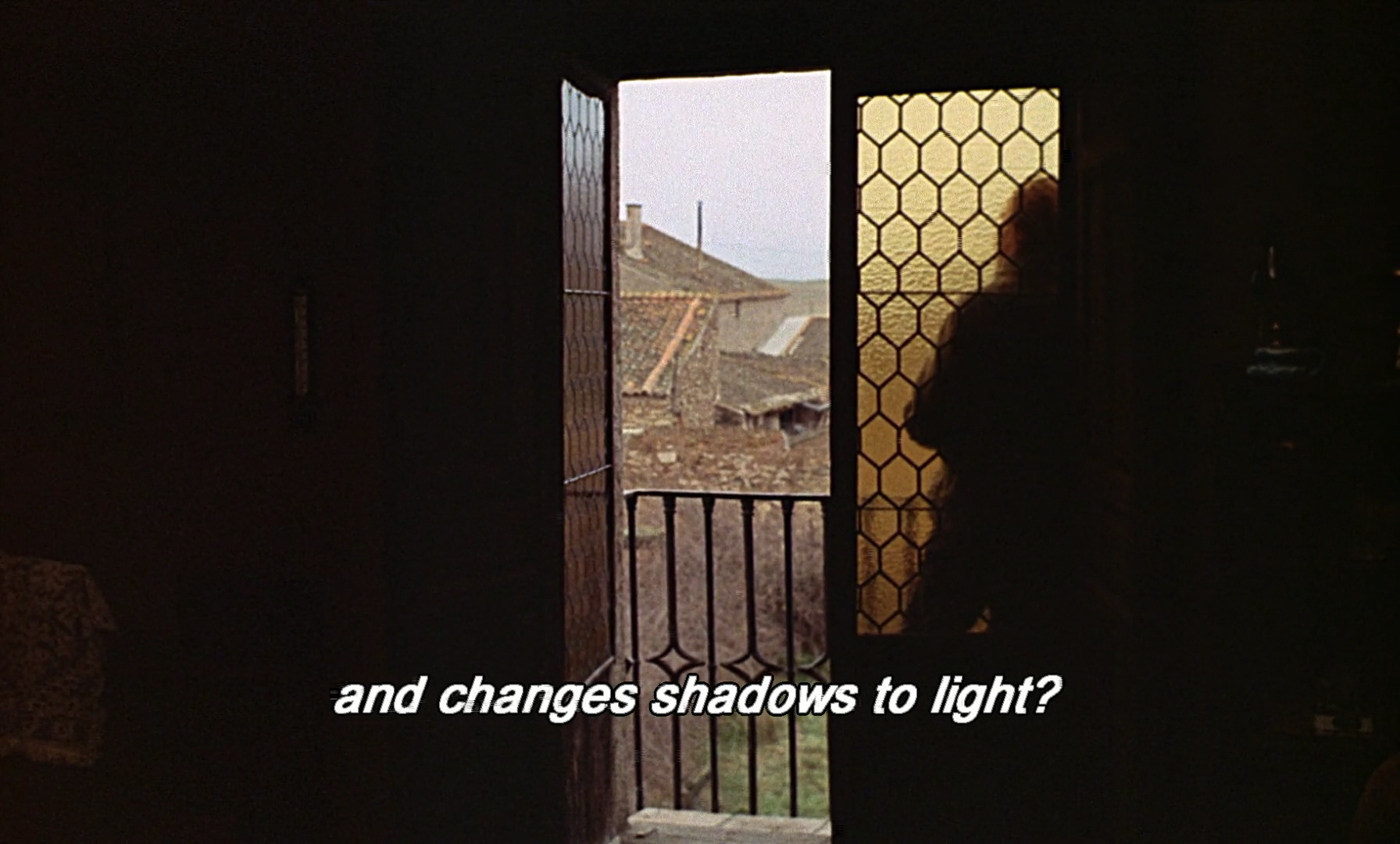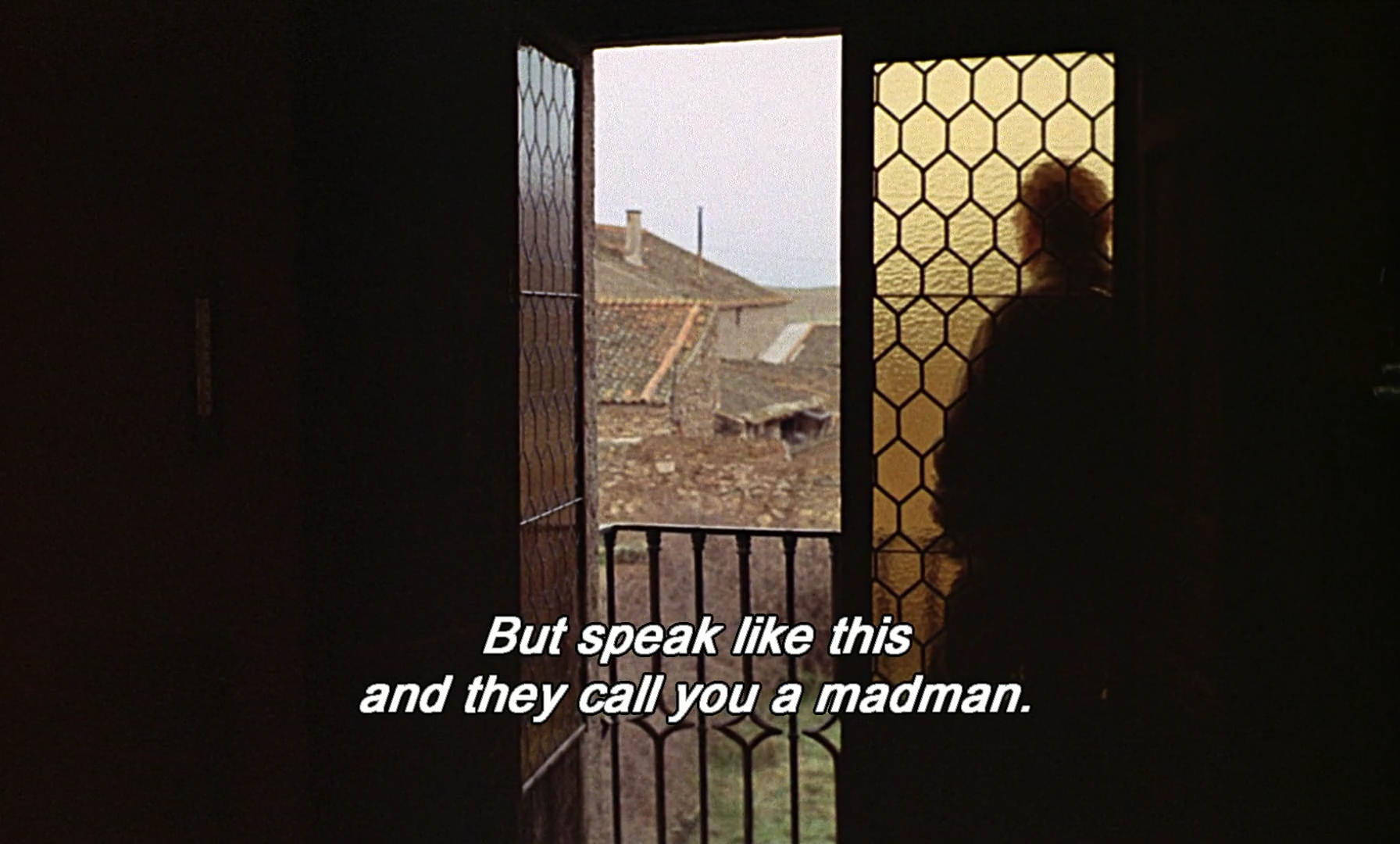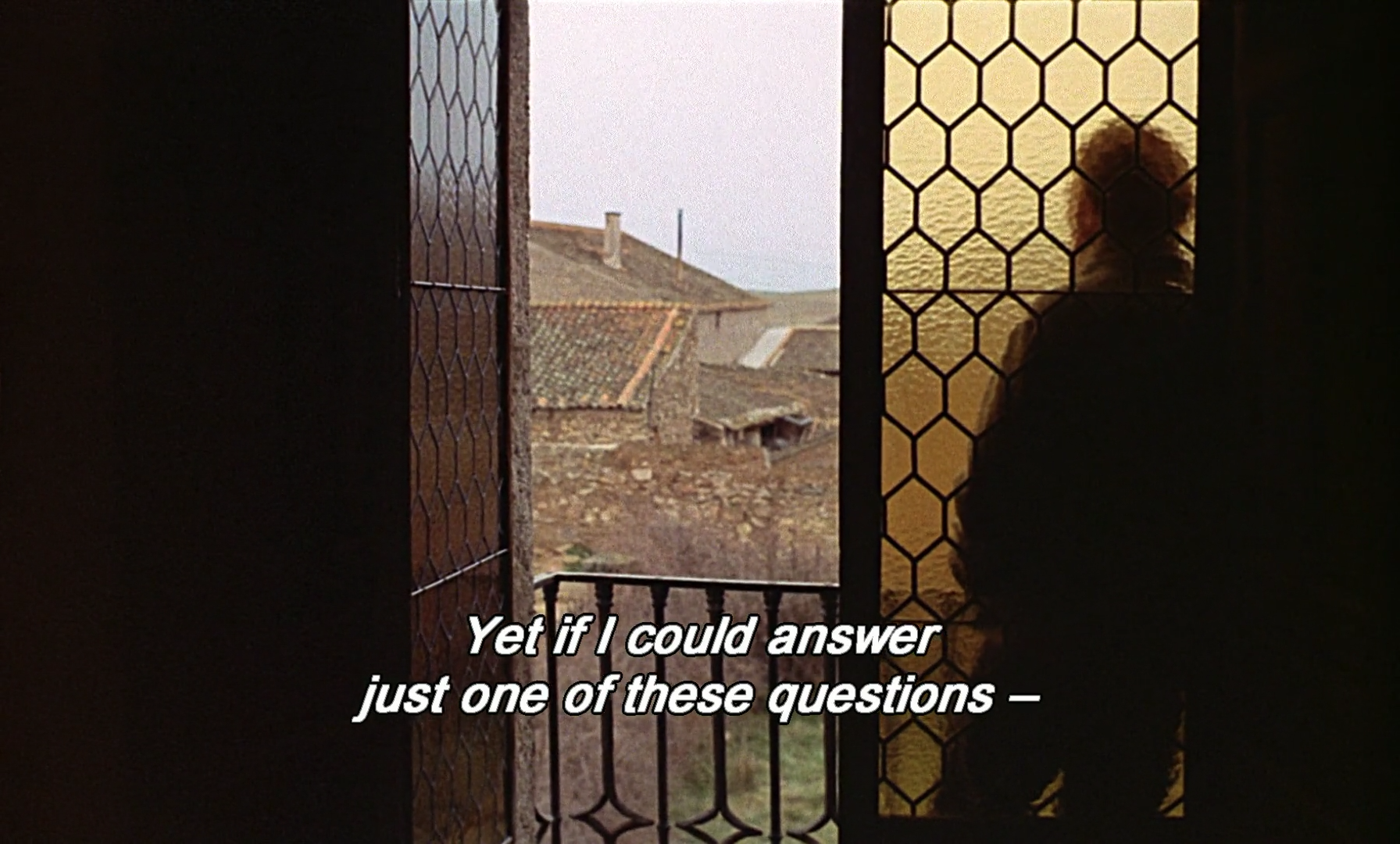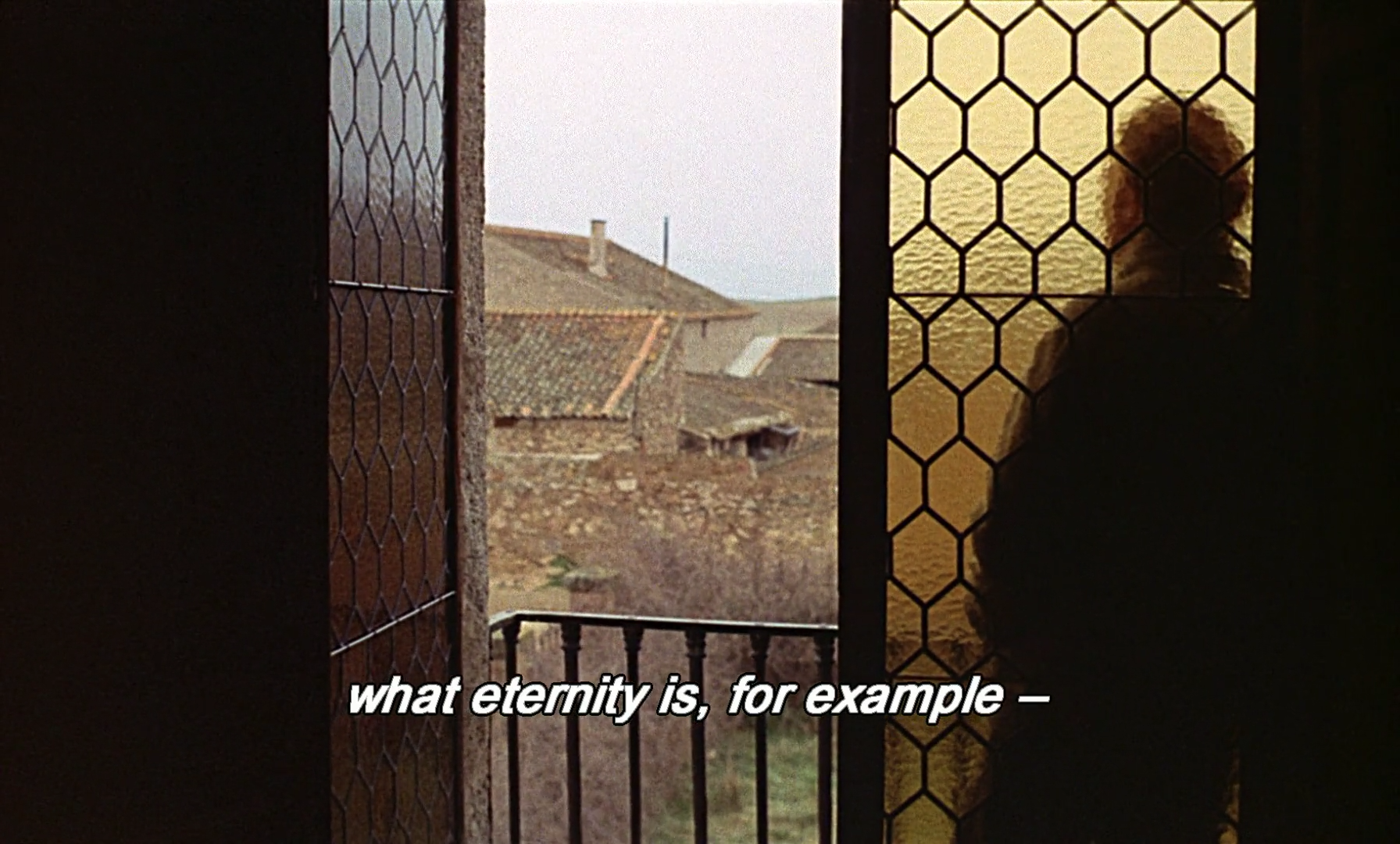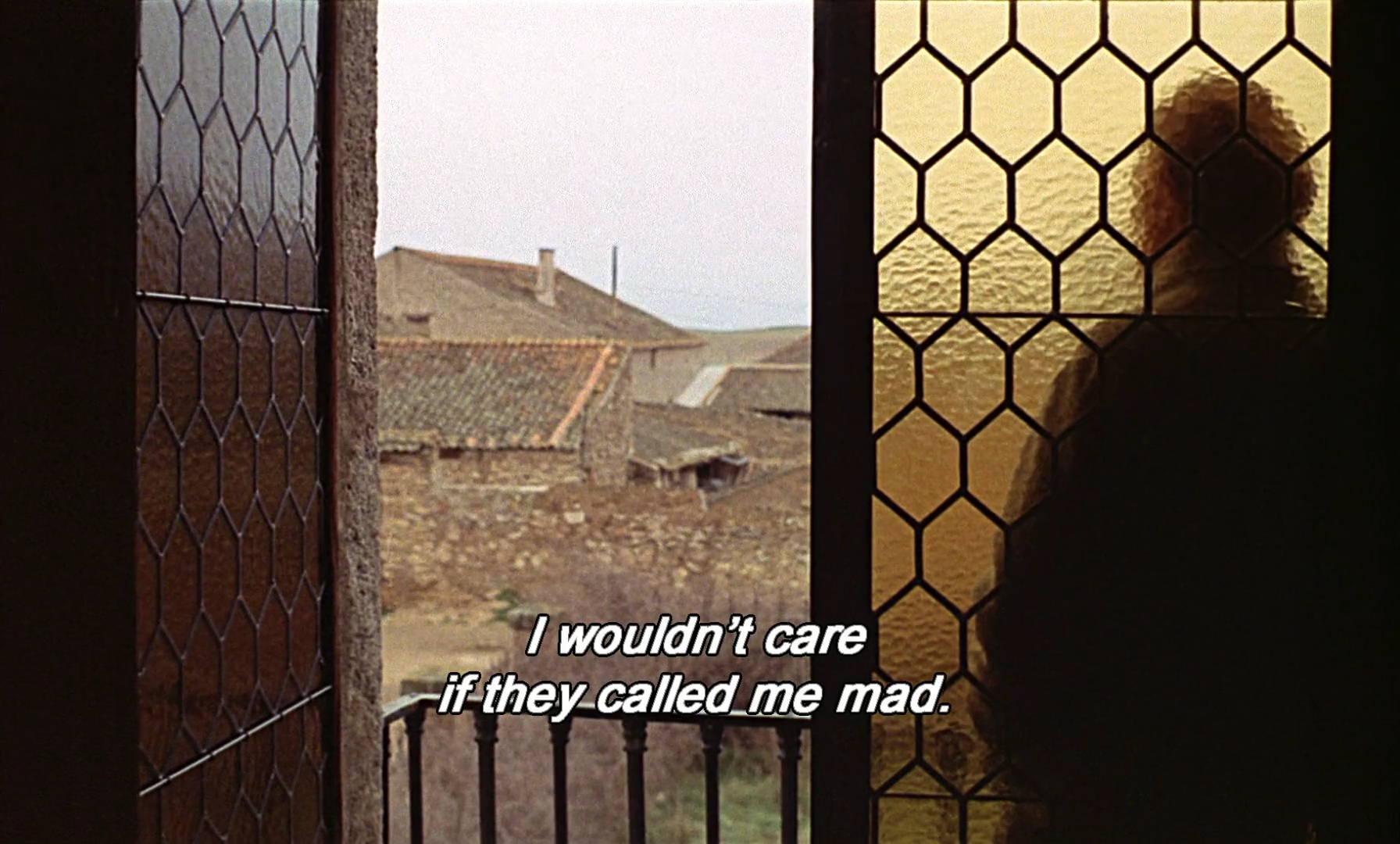The Spirit of the Beehive, directed by Victor Erice, screenplay by Victor Erice, Angel Fernández Santos, and Francisco J. Querejeta, cinematography by Luis Cuadrado, music by Luis de Pablo, and edit by Pablo G. del Amo.
“I try to achieve the beauty of truth. I always took as my motto what Robert Bresson said: ‘You don’t have to make images that are beautiful. You have to make images that are necessary.’” By invoking Robert Bresson’s philosophy on filmmaking, Victor Erice highlights the idea that the right choices in the right details is the key to creating the beauty of truth in cinema. Akira Kurosawa also alluded to this and referred to it as cinematic beauty, a beauty that is only obtainable through the efficient and effective use of film language, that when well-expressed produces a deep experience for the audience, and which is the very thing that inspires a filmmaker to create a film in the first place. For Erice, “Cinema may have no alternative other than to fall back on itself so that it may, once it has assumed its solitude, affirm itself in its dignity: a dignity conferred onto it by virtue of being the last of the artistic languages invented by man.” As an art form all to itself, cinema possesses its own unique artistic language, and it is by utilizing—making efficient and effective use of—this film language that Erice accomplishes the beauty of truth in his timeless films like The Spirit of the Beehive. Great films engage audiences with cinematic beauty through specificity of vision and economy of meaning. A great film results in cinematic beauty through the artist’s unique honing of a film to its essential poetry.
